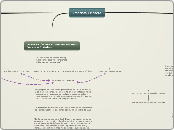El poder político y la economía bajo el Porfiriato 1876-1910.
To name your story, you have to think about the overall message and what you want your audience to understand from the story. Also, make it relevant and easy to remember.
Referencias Bibliográficas.
Brom, Juan. "Esbozo de historia de México". Cap 14 en El poder político y la economía bajo Porfirio Díaz. 1876-1910. México, 1998.
México al final del Porfiriato
The middle of the story is where you add layers of complications that will lead to the end. Reveal more about the character's journey. Did their personality go through changes? How did they overcome the challenges? And as you build up the story’s central conflict, make it more personal to that character. Also, from the middle act, you have to lead into the final act.
Your character(s) need(s) motivation in order to solve the challenge(s).
Aumento de deuda externa.
Secondary characters might also have motives that lead them to cross paths with the main character or which might trigger them to help the main character.
Predomina el capital extranjero de E.U.
Why does your character need to confront this challenge? What does he/she expect to accomplish by solving it?
See a few examples:
- will marry in 3 days
- can fix the mistakes of the past
Obras públicas
Each story has a main character and that character usually needs to solve a problem or challenge. The character's challenge is the one that creates tension throughout the story.
Hospital general.
Type in any other challenges which other characters in the story need to face.
Construcción de teatros
El ángel de la Independecia
Tranvías
alumbrado eléctrico
Abastecimiento de agua, drenaje y desagüe
Manicomnio
Inicio de construcción de Palacio legislativo
termina siedo monumento a la Revolución
Inicio de contrucción de Bellas Artes
Penitencieria
Edificio de correos
In most stories, there are 3 challenges. The number 3 is a mystical number symbolizing completeness. Try to come up with interesting challenges with which your character needs to struggle.
See a few examples below:
- turns into a werewolf at night
- is sent back in time
El apogeo aparente 1900-1910
Política
Movimientos
Derechos de campesinos y obreros.
"Club liberal Porciano Arriaga"
Influyeron en la cnstitución de 1917
Reestablecer constitución de 1857
Hermanos Magón
Implementar 8hr de trabajo
Enseñanza laica.
Regresar tierras a campesinos
Periódico "regeneración por Jésus
Antonio Díaz Soto
Camilo Arriaga
Extracción de petróleo
principios de siglo XX
hacendados, terratenientes, rancheros
Aumento de deuda en 1890-1911
Energía eléctrica por Mexican Lihgt and power Co
construyeron presa de Necaxa
Empresarios.
proletariado industrial.
ligado con extranjeros.
Compañias deslindadoras
venta de terrenos sin dueño
Arrendatarios
Campesinos e indios
explotación por hacendados, terratenientes y rancheros.
creación de tienda de raya.
arrebato de tierras
desarrolo de caña de azúcar, henequén, café, algodón
Aumento de industrias
Fabricas textiles
Veracruz, Puebla, Tlaxcala, Sur de D.F.
Minería
privatización de subsuelo
terratenientes, rancheros, propietarios de mina.
Creación de vías ferreas.
favoreció comercio nacional e internacional.
obreros industriales
Equlibrio de deuda externa
La consolidación del poder 1876-1888
In the beginning of the story (or the exposition), you will need to introduce the setting and characters. You might also want to introduce the main conflict. This part of the story is important because it gives the reader necessary background information and maybe even a first insight into a character’s personality.
Política.
The setting (time & place) of a story can change throughout the plot.
Reconocimiento diplomático de Washington
The weather is an important element in your story because it can highly influence the ambiance and the mood of the characters.
Jefes políticos.
The time of the story can also change. It can describe the event of a single day or can include an entire year's plot. Anyway, don't forget to mention it.
someter campesinos
Presidencia
Your story can take place wherever your imagination will take you to.
For example: in an elevator, in an enchanted forest, etc. Don't forget to give details of the environment each time the setting changes, otherwise, the story can be confusing. Also, mention the seasons as each of them has unique weather and events.
Reelección de Díaz
1884
Elegido Manuel Gonzáles. 1880-1884
Economía
Characters are essential to a good story. Usually, the protagonist(s) is/are the most affected by the plot. Introduce a character by focusing on their actions, interests, and occupation, as the physical appearance doesn't make a difference in most cases.
Extranjero
E.U.
actividad industrial en México.
Manuel "el manco" G. 1880-1884
Type in the name of your character.
Fundó Banco de México.
Add other qualities/attributes of the character.
Agricultura
What is your character's main goal?
fight Evilfind lovedefeat his/her enemyrule the worldmake friendstime travelmake an awesome discoveryOther
exportación de henequén y café
modernización de herramientas.
Incremento de metal industrial.
Which traits best describe the character's personality? Choose more if necessary:
introvertedloyalkindindependentquick-thinkingadventuresomeidealisticsweet-naturedcalmrisk-takercreativewittystrictfussyweirdclumsyharshaggressivecarelessclingingcowardlycrueldeceitfulimpulsiveOther
Incremento de capital extranjero.
Choose the type of your chacter:
Protagonist (main character)Antagonist (main character's opponent)Flat (stereotypical character)Round (his/ her personality develops throughout the story)Static (doesn't evolve as a person throughout the story)Dynamic (dramatical change in personality)Confidant (the main character trusts him/ her)Foil (contrasting character who enhances the personality of another character)Other










